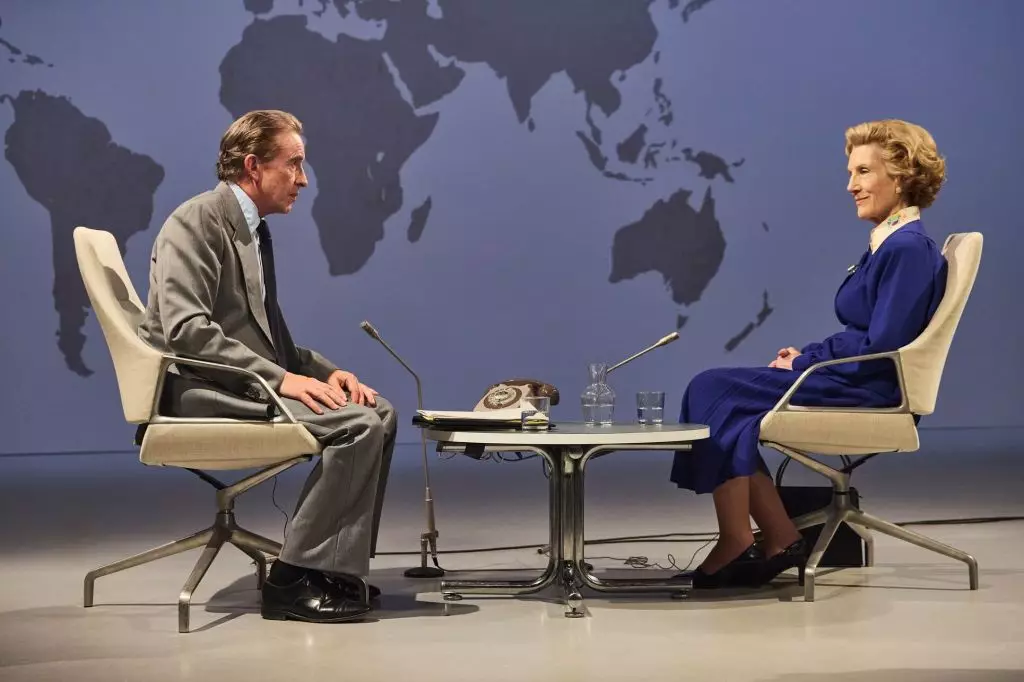Channel 4 is set to stir public conversations once again with its upcoming two-part drama, “Brian and Maggie,” which explores the final televised interview of Margaret Thatcher, portrayed by Harriet Walter. This high-profile production is helmed by notable figures James Graham and Stephen Frears, promising a blend of historical reenactment and contemporary political critique. Through the lens of interviewer Brian Walden, played by Steve Coogan, audiences are expected to witness not only a portrayal of political dynamics but also an exploration of how media plays a pivotal role in shaping political narratives.
The significance of Thatcher’s last interview extends beyond mere entertainment; it marks a critical moment in British political history. This succinctly captured event transformed public discourse, leading to a cascade of developments that ultimately resulted in Thatcher’s resignation. This drama does not merely seek to document an exchange; it aspires to pose fundamental questions about the role of political interviews in modern democracy, suggesting that the engagement of audiences with political figures has shifted in recent years.
Thematic Resonance with Contemporary Issues
The creators of “Brian and Maggie” have drawn parallels between this historical encounter and modern political interviews, most notably hinting at parallels with the infamous Frost/Nixon interview. The series seeks to delve deeper into the relevance of substantive political discourse in an era overshadowed by sensationalism and short attention spans. As viewers are increasingly fed through bite-sized news, the show raises concerns about whether the gradual decline of in-depth political interviews could jeopardize the fabric of democracy itself.
Drawing from Rob Burley’s insightful book, “Why Is This Lying Bastard Lying to Me,” the series taps into real-life political intrigues while framing them in a dramatic context. This intersection of fact and fiction allows for a multidimensional exploration of themes relevant both then and now. The show intends not just to recount history, but to interrogate the motivations and implications behind political dialogue.
Production Insights and Expectations
Commissioned under Ollie Madden, Channel 4’s new head of drama, “Brian and Maggie” marks a notable shift in the network’s commitment to producing thought-provoking content. The involvement of Baby Cow Productions, known for its fresh and innovative storytelling approach, adds an intriguing dimension to the project. With executive producers like Sarah Monteith and a team well-versed in creating impactful dramas, the anticipation surrounding this series is palpable.
As modern audiences seek more from the visual narratives they consume, “Brian and Maggie” tries to fulfill that need by raising pertinent questions about political integrity and media responsibility. This dual focus on both dramatic storytelling and societal relevance positions the series not merely as entertainment but as an essential commentary on the contemporary political landscape.
“Brian and Maggie” promises to be a riveting exploration of a pivotal moment in British history, while concurrently challenging viewers to consider the implications of political engagement in today’s media-saturated world. As we approach the airing of this two-part drama, the dialogue it sparks promises to be as vital as the subject matter it tackles.

